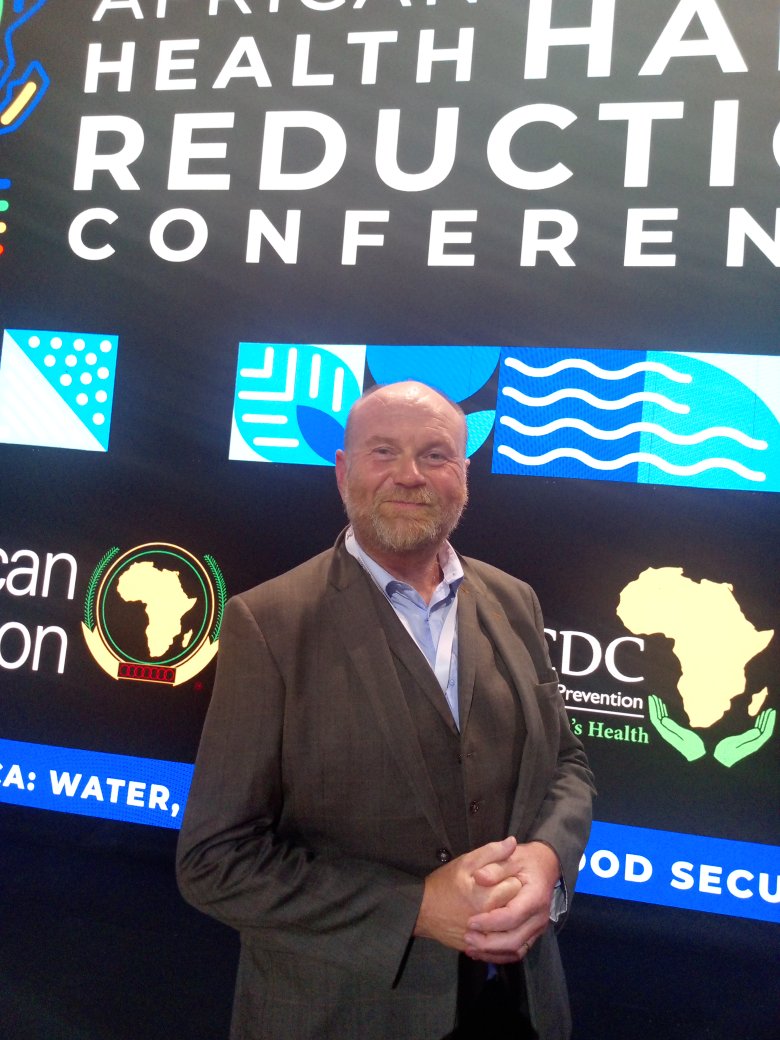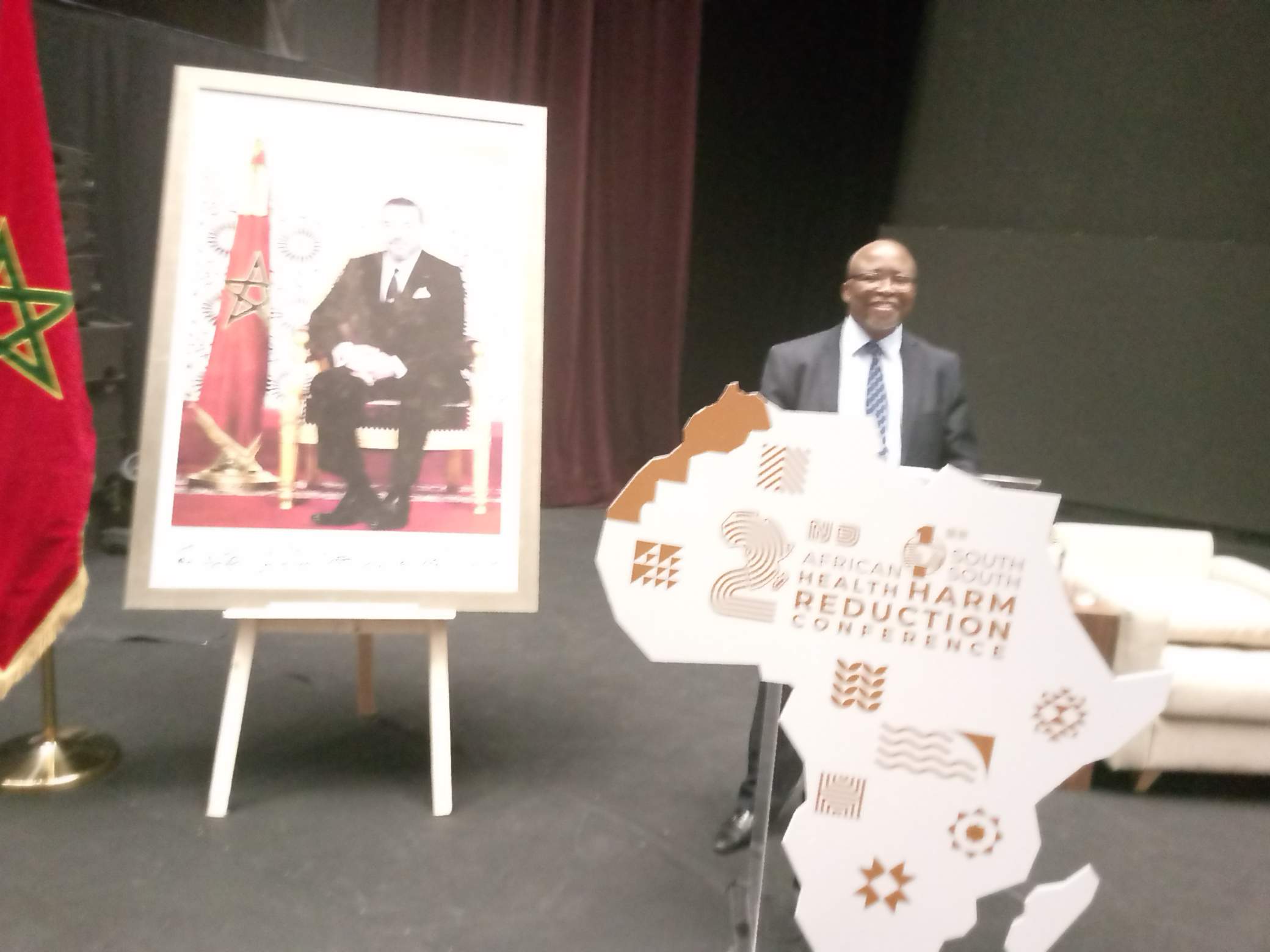|
Getting your Trinity Audio player ready...
|
Healthcare systems should prepare proactively in cases of natural disasters, Dr. Katlego Mothudi, the Managing Director at the Board of Healthcare Funders of Southern Africa (BHF) has said.
He made the remarks today during the second edition of the African Conference on Risk Reduction that is taking place from September 27 to 29, 2023, in Marrakech, under the High Patronage of His Majesty King Mohammed VI. This internationally significant event is jointly organized by the Ministry of Health and Social Protection and the Ministry of Agriculture, Fisheries, Rural Development, and Water and Forests, in collaboration with the African Global Health (AGH) initiative.
The healthcare expert reckoned that in an increasingly interconnected world, where threats to health become transnational issues, humankind often finds itself in a position where cohesive efforts, strategic planning, and unified stances are essential.
“Unfortunately during a disaster, both natural and human-made, the project management handbook gets thrown out when we are within the throngs of the event, as we soon realise that we don’t have the luxury of time nor unlimited resources. Sadly, those very resources that we require, be they infrastructural or human, may very well also be compromised by the very disaster. It is in that instance that we have to rely on the past, the past that should have afforded us the opportunity to plan and prepare adequately for the future we would find ourselves in. It becomes a case of the unforeseen having to be regarded as a certainty before it is realised.
“In the realm of healthcare, disasters are unique challenges that test the resilience of institutional roles. Disasters can happen anytime, anywhere, and as we have seen in recent times, they often strike without warning. Thus, it’s incumbent upon institutions, particularly healthcare systems, to prepare proactively. The role of institutions, like hospitals, clinics, healthcare associations, and organisations, needs to be about readiness and not just response. This implies capacity building, education, and simulation training on disaster scenarios for health professionals and institutions. Additionally, the setup of a dedicated disaster response team within each institution and country or territory would ensure immediate action when needed,” Dr. Mothudi said.
He added that healthcare institutions and organisations thus need to work in harmony with governments to craft policies for disaster management and subsequent health equity.
“These policies are central to forming a concrete support system for disaster resilience and healthcare. They can enforce regulations that ensure all institutions have an emergency blueprint in place, encourage inter-agency collaboration, and offer financial and logistical aid during disasters. Essentially, the aim is to lay down a strong foundation where policies can guide action, preventing ad hoc responses, and mitigating the disaster’s health impact.
“Our governments must formulate coherent policies that directly address disaster healthcare management, and implement those policies in a timely manner – funding, supporting, and supplementing our healthcare systems before, during, and after disasters strike. Governments also play a key role in orchestrating interdepartmental communication and making certain that different sectors are working together efficiently for the common goal of resilience in the face of disaster,” he added.
Speaking to this publication on the sidelines of the conference, Andy Bleaden, the Communities Director of ECHAlliance – The Global Health Connector, paid tribute to multiple stakeholders for coming together in sharing ways of tackling natural disasters.

“The coming together of different countries to share evidence on best practices in tackling natural disasters is impressive. Cross-border collaboration in countries like Turkey, Israel, and Morocco in working together in tackling disasters is important. Bringing together healthcare players will enforce best practices for best outcomes,” Bleaden said.
Addressing health equity in the wake of such disasters requires deliberation. Health equity is about everyone having a fair and equal opportunity to stay healthy, irrespective of who they are and where they come from. Disasters often lay bare the glaring health inequities that exist within societies. Governments and institutions should strive to implement equitable recovery measures to ensure accessible, affordable, and quality healthcare for all, post-disasters.
This requires a commitment towards universal health coverage, mobilizing resources and infrastructure for marginalized and exposed communities, and building a stronger, fairer health system to safeguard the health of every citizen.
The experts reiterated that ensuring that disaster response, including disease surveillance, early recovery, and restoration of healthcare services, must be done in an equitable manner, leaving no one behind.
However, they added that the focus should not rest solely upon local communities, who are the first to respond during health crises and need to be resilient, adaptable, and always ready, but the focus should extend globally.
“Disease, disaster, and inequality do not adhere to geographical borders, and neither can our approach to overcoming them. International collaboration promotes shared learning, resource mobilization, and policy harmonization. Forming a network of global health institutions and professionals involved in disaster response helps build a platform that acts quickly and strategically during emergencies.
“We have seen how instrumental international organisations like the WHO, and UN; International funders like GAVI, and PEPFAR, response teams from the Red Cross, Gift of the Givers, and Doctors Without Borders, have been in assisting territories and countries cope with Disaster management. Moreover, leveraging international aid for rebuilding efforts can enhance local healthcare capacity and improve access to care. Integration of global health measures into disaster management is thus critical to induce a sense of shared responsibility and collective action,” Dr. Mothudi added.






